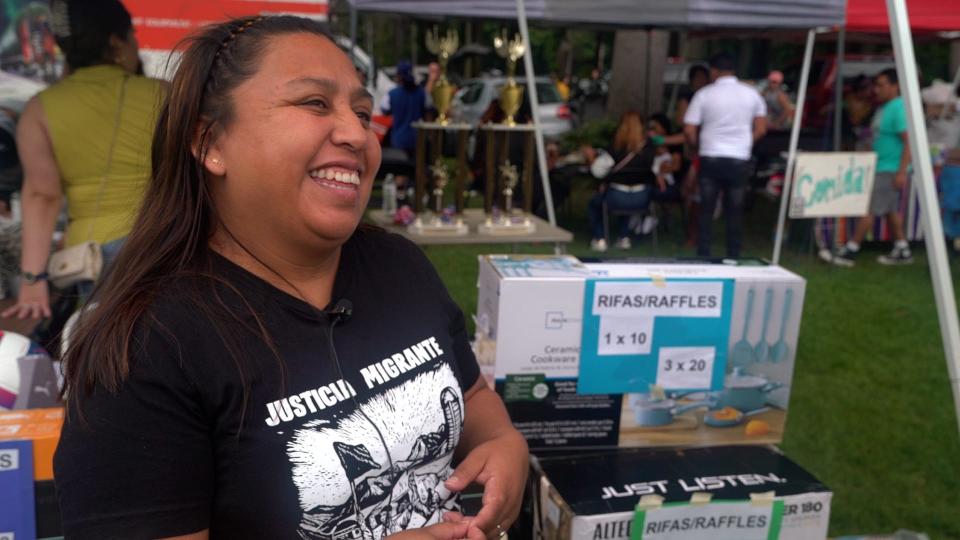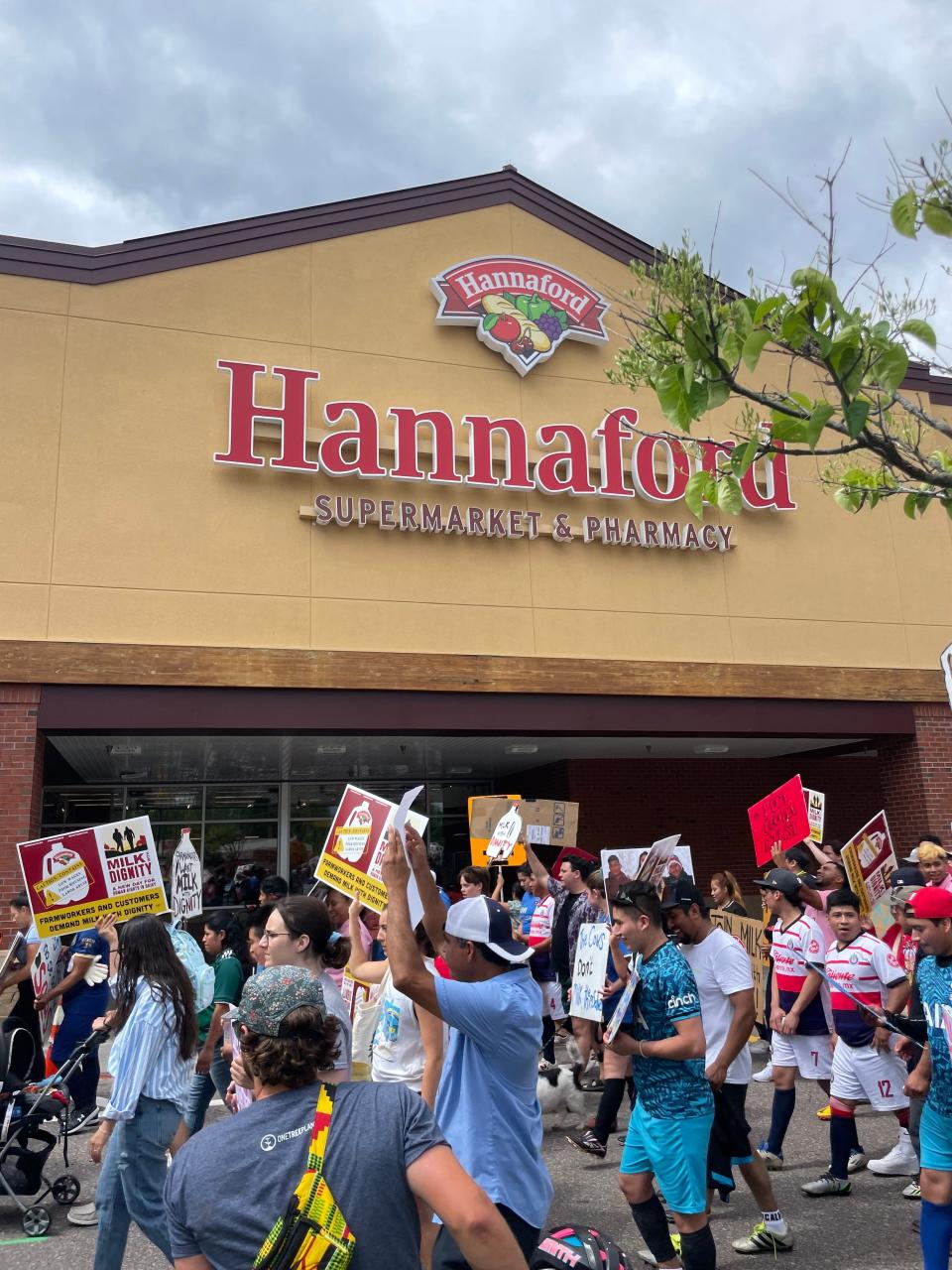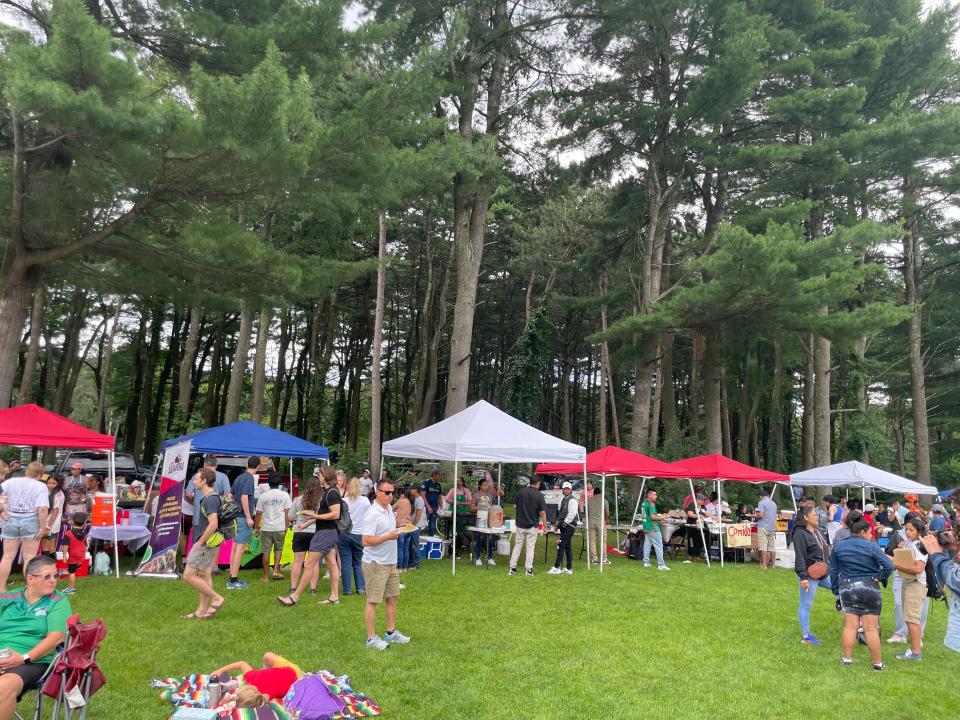'Led by us, the farmworkers': How Migrant Justice soccer tournament builds community
Migrant Justice/Justicia Migrante filled Leddy Park with cheers and chants at its 10th annual soccer tournament, held on July 22. Music played, little kids donned face paint and fieldside cooktops sizzled while the community gathered to celebrate another year of Migrant Justice.
“Today is exciting because it’s another year since the founding of the organization and this is our organization,” Yobani Moreno said in Spanish, interpreted by Will Lambek, Migrant Justice organizer and translator. “It’s composed of and led by us, the farmworkers, so it’s really important to be able to come together and celebrate as a community.”
Moreno is a dairy farmworker and soccer player.
Lambek, Migrant Justice translator and organizer, interpreted all of the interviews for this article from Spanish to English.

What does Migrant Justice/Justicia Migrante do
The Burlington-based organization aims to harness the power of the farmworker community to discuss economic justice and human rights, and fight for that justice through collective action, holding Northeast corporations accountable for workers all the way down the supply chain.
“Migrant Justice’s staff is just a group of seven people," Rosie Alfaro said through Lambek as interpreter. "But our work is to go out to the farms, to go out to the community, to organize the community, to educate them to fight for their rights."

Alfaro, an organizer with Migrant Justice, was getting ready to play that afternoon on one of four women's teams. Seventeen teams took the field in total, all made up of Migrant Justice community members. Four teams played at a time, rotating every 35 minutes from 11 a.m. until the finals, which began at 5:15 p.m.
Cow crushing to sawdust in the eye: Clinic provides health care to undocumented farm workers key to Vermont dairy industry
Emilio Samayoa, a member of the coordinating committee, said the event is an opportunity to generate connections that can come few and far between.
“This is a really unique day because we come together once a year for this tournament," Samayoa said through Lambek. "And you’re here seeing people who you haven’t seen for years at a time. And it’s a chance to reconnect and meet new folks."
Milk With Dignity/Leche Con Dignidad
After the fourth round, the games paused for a moment of political action. Organizers brought out piles of signs and bullhorns, and slowly the crowd began walking through the woods into the Hannaford parking lot.
“¿Qué queremos?” A person at the front shouted.
“¡Leche con dignidad!” the crowd responded.
“¿Cuándo queremos?”
“¡Ahora!”
The chant translates to "What we want?"
"Milk with Dignity"
"When do we want it?"
"Now!"
The crowd stopped at the entrance to the store. Eventually, the managers came out and asked Migrant Justice to leave due to alleged safety reasons, but Lambek and other Migrant Justice organizers began to read aloud the complaints – largely regarding safety concerns for workers – that are part of their Milk with Dignity, or Leche con Dignidad, program.
Housing redevelopment on Vermont farms: Can a new program improve housing for VT migrant farmer workers? Sprague Ranch hopes so

The program strives to hold corporations accountable to ensure ethical working conditions on each level of the Northeast dairy supply chain. The official complaint and the Milk With Dignity Code of Conduct can be found on Migrant Justice’s website.
Viva el Sabor culinary collective
Elizabeth Ramirez stood at her stove making gorditas until it was her turn to compete in the tournament. She served up gorditas, tamales and empanadas.
“It’s really exciting because in this state there’s not all that much Mexican food so having us all here in one place selling food together … It doesn’t happen every day. This is the place to get your Mexican food,” Ramirez said through a translator, patting masa wearing a traditional dress embroidered with sunflowers.
Ramirez is not only a cook and soccer player, but also a member of the coordinating committee. She has been working with Migrant Justice for three years, cooking and playing soccer for the tournament for two.

Ramirez and a few other cooks at the soccer tournament are part of the Viva el Sabor culinary collective based in Addison County, which is hosting a summer festival at Marbleworks in Middlebury.
Moreno said the fun, relaxed atmosphere at the tournament, which the food is central to, makes the day so special.
“When you’re working on a farm, really your whole day is just work. There’s not much time to do anything else," Moreno said. "So this is really one day in the year when we can come together, relax, hang out together as a community, and meet new people."
The tournament also featured a raffle to raise money for the organization. Learn more about Migrant Justice at migrantjustice.net.
Contact Free Press reporter Kate Sadoff at ksadoff@gannett.com.
This article originally appeared on Burlington Free Press: How Migrant Justice's soccer tournament connects farmworkers

